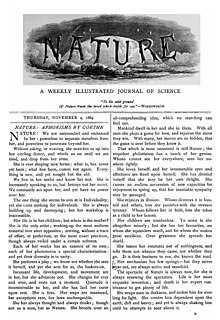
In academic publishing, a scientific journal is a periodical publication intended to further the progress of science, usually by reporting new research.

Publishing is the dissemination of literature, music, or information. It is the activity of making information available to the general public. In some cases, authors may be their own publishers, meaning originators and developers of content also provide media to deliver and display their content. Also, the word "publisher" can refer both to an individual who leads a publishing company or an imprint and to an individual who owns/heads a magazine.

Print-on-demand (POD) is a printing technology and business process in which book copies are not printed until the company receives an order, allowing prints of singular or small quantities. While other industries established the build to order business model, "print-on-demand" could only develop after the beginning of digital printing, because it was not economical to print single copies using traditional printing technology such as letterpress and offset printing.
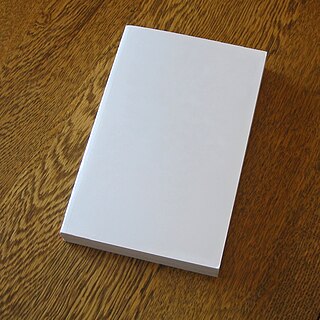
A paperback, also known as a softcover or softback, is a type of book characterized by a thick paper or paperboard cover, and often held together with glue rather than stitches or staples. In contrast, hardcover or hardback books are bound with cardboard covered with cloth. The pages on the inside are made of paper.
A vanity press, vanity publisher, or subsidy publisher is a publishing house in which authors pay to have their books published. Vanity publishers have no selection criteria as opposed to other "hybrid" publishing models. The term has appeared in mainstream U.S. publications as early as 1941. In contrast, mainstream publishers, whether major companies or small presses, derive their profit from sales of the book to the general public. Publishers must therefore be cautious and deliberate in choosing to publish works that will sell, particularly as they must recoup their investment in the book. In order to sell books, commercial publishers may also be selective in order to cultivate a reputation for high-quality work, or to specialize in a particular genre.

A hardcover or hardback book is one bound with rigid protective covers. It has a flexible, sewn spine which allows the book to lie flat on a surface when opened. Following the ISBN sequence numbers, books of this type may be identified by the abbreviation Hbk.

The dust jacket of a book is the detachable outer cover, usually made of paper and printed with text and illustrations. This outer cover has folded flaps that hold it to the front and back book covers. Often the back panel or flaps are printed with biographical information about the author, a summary of the book from the publisher or critical praise from celebrities or authorities in the book's subject area. In addition to its promotional role, the dust jacket protects the book covers from damage. However, since it is itself relatively fragile, and since dust jackets have practical, aesthetic and sometimes financial value, the jacket may in turn be wrapped in another jacket, usually transparent, especially if the book is a library volume.
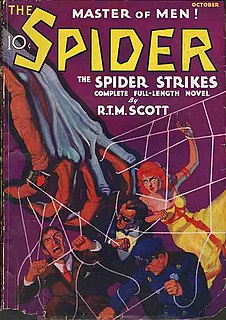
The Spider is an American pulp-magazine hero of the 1930s and 1940s.
Dover Publications, also known as Dover Books, is an American book publisher founded in 1941 by Hayward Cirker and his wife, Blanche. It primarily publishes reissues, books no longer published by their original publishers. These are often, but not always, books in the public domain. The original published editions may be scarce or historically significant. Dover republishes these books, making them available at a significantly reduced cost.
A book series is a sequence of books having certain characteristics in common that are formally identified together as a group. Book series can be organized in different ways, such as written by the same author, or marketed as a group by their publisher.
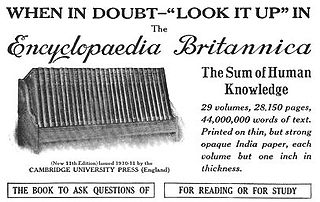
An out-of-print book is a book that is no longer being published. The term can apply to specific editions of more popular works, which may then go in and out of print repeatedly, or to the sole printed edition of a work, which is not picked up again by any future publishers for reprint. Most works that have ever been published are out of print at any given time, while certain highly popular books, such as the Bible, are always "in print". Less popular out of print books are often rare and may be difficult to acquire unless scanned or electronic copies of the books are available. With the advent of book scanning, and print-on-demand technology, fewer and fewer works are now considered truly out of print.
Annual publications, more often called simply annuals, are periodical publications appearing regularly once per year. Although exact definitions may vary, types of annuals include: Calendars and almanacs, directories, yearbooks, annual reports, proceedings and transactions and literary annuals. A weekly or monthly publication may produce an Annual featuring similar materials to the regular publication. Some encyclopedias have published annual supplements that essentially summarize the news of the past year, similar to some newspaper yearbooks.
In comics, a trade paperback is a collection of stories originally published in comic books, reprinted in book format, usually capturing one story arc from a single title or a series of stories with a connected story arc or common theme, or an earlier mini-series.
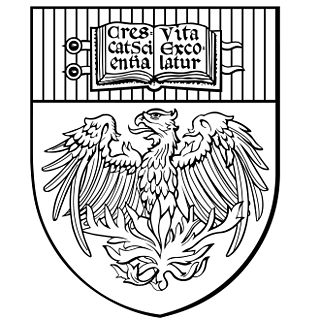
The University of Chicago Press is the largest and one of the oldest university presses in the United States. It is operated by the University of Chicago and publishes a wide variety of academic titles, including The Chicago Manual of Style, numerous academic journals, and advanced monographs in the academic fields.
Marvel Masterworks is an American collection of hardcover and trade paperback comic book reprints published by Marvel Comics.
The Grand Comics Database (GCD) is an Internet-based project to build a database of comic book information through user contributions. The GCD project is cataloging information on creator credits, story details, reprints, and other information useful to the comic book reader, comic collector, fan, and scholar. The GCD is a 501(c)(3) nonprofit organization incorporated in Arkansas.

Periodical literature is a category of serial publications that appear in a new edition on a regular schedule. The most familiar example is the magazine, typically published weekly, monthly, or quarterly. Newspapers, often published daily or weekly, are, strictly speaking, a separate category of serial. Other examples of periodicals are newsletters, literary magazines, academic journals, science magazines, yearbooks and comic books.

The following outline is provided as an overview of and topical guide to books:















